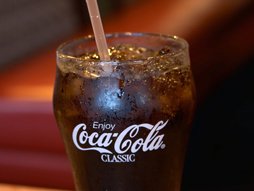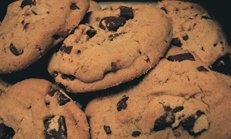Take the Body Type Quiz! Determine your type for easy weight loss.
What's Wrong With
High Fructose Corn Syrup?
High fructose corn syrup, HFCS, also known as glucose/fructose in Canada, is a sweetener used in most packaged foods and soft drinks. It is cheaper to produce than refined sugar mostly due to large government subsidies.

It is good to see that more people are becoming aware of the consequences of eating food (or should I say non-food) containing HFCS.
Concerns about HFCS contributing to diabetes and obesity are real. There is an increasing amount of experimental data supporting these claims!
Some companies such as Heinz, and Hunts, are bowing under pressure and running adds stating the product or drink does not contain HFCS.
Buyer beware, they are back to using sugar, trying to trick consumers into believing that sugar is much better for us!
Also, now that the public have been alerted to the dangers, the corn refiners association wants the FDA to change the name of high fructose corn syrup to corn sugar. Same product, different name.
A little background
Use of HFCS in processed foods began in the 70's and gradually replaced cane and beet sugar in foods.
The 80's showed a huge spike in the use of HFCS and not surprisingly this coincides with skyrocketing obesity.
85% of HFCS is made from genetically modified corn.
HFCS can be found in candies, juice, ketchup, canned fruits and vegetables, aperetifs, chocolate, frozen meals, vitamins, cough syrup, crackers, mayonnaise, salad dressing, pastry, ice cream, cookies, yogurt, yogurt drinks, gum, jam, etc.
The trouble with HFCS?
There is no level of satiation.
Here's what happens...
Sugar, glucose and other sugars cause the pancreas to produce insulin. Fructose does not. Fructose also has no effect on the production of leptin, a hormone produced by the body's fat cells. Both insulin and leptin signal the body to start suppressing appetite.
 |
When soft drinks were sweetened with sugar if you drank a lot you would probably vomit. Now you can drink a few liters and the body will tolerate it. You can also consume a whole bag of cookies and want to eat more. The same holds true for any snack sweetened with HFCS. |
Also, HFCS does not raise glycemic levels, it is transformed into triglycerides, which is a kind of fat, which is found in the blood and deposited in the arteries. It raises our cholesterol and is a major factor in the cause of heart disease, heart attack and other health disorders.
Sugar and HFCS have some of the same effects on the body...here are only a few
- Immediately depresses the immune system
- Increases acidity in the body
- Increases free radicals
- Can contribute to hyperactivity, anxiety and depression
- Causes cavities
How to Avoid High Fructose Corn Syrup?
1. Drink pure water, kick your soft drink habit. If you have a real addiction, reduce slowly to avoid severe withdrawal symptoms, severe headaches, etc.
2. Cook more from scratch. Making your own healthy food instead of consuming processed packaged food is one way to ensure you are not consuming HFCS.
3. Read labels carefully. If you do buy packaged foods read the labels and avoid foods with HFCS.
4. If you need to use sweetener, choose a natural sweetener
Once you start making healthy eating choices and following a healthy diet it is easy to avoid foods that contain high fructose corn syrup.
The healthier you eat the more you crave healthy foods.
